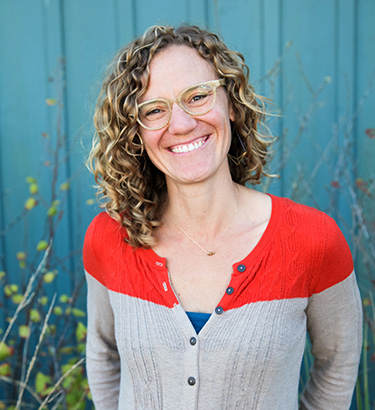Campus News
Ecologist Kristy Kroeker wins prestigious Packard Fellowship
The Packard Fellowship supports Kroeker’s research on environmental change in dynamic environments and complex ecosystems.

The David and Lucile Packard Foundation has awarded a Packard Fellowship for Science and Engineering to Kristy Kroeker, assistant professor of ecology and evolutionary biology at UC Santa Cruz.
The Packard Fellowship, one of the nation’s most prestigious honors for young faculty members, gives Kroeker $875,000 over the next five years to support her research on environmental change in dynamic environments and complex ecosystems. Kroeker is interested in how the rapidly accelerating changes in our environment will alter the fundamental ways that marine ecosystems work in the future.
Ocean acidification
Increasing levels of carbon dioxide in the atmosphere are driving widespread changes in the temperature and chemistry of the oceans. Ocean acidification refers to changes in seawater chemistry occurring as surface waters absorb more carbon dioxide from the atmosphere. At the same time, global warming is raising ocean temperatures.
“Our ability to actually predict how ecosystems are going to be affected by something like ocean acidification or climate change is limited because ecosystems are inherently complex,” Kroeker said. “The organisms in an ecosystem are all interconnected and responding to each other and to the environment in which they live, and it’s hard to predict what’s going to happen when you overlay ocean acidification and climate change on top of that.”
With the Packard funding, Kroeker plans to conduct large-scale studies of marine ecosystems to understand how these global changes will affect not only individual species but complex assemblages of multiple species. She noted that various environmental changes can have different and sometimes opposing patterns of occurrence and effects on species, yet they are often studied in isolation. “While many species are already responding to warming trends by shifting into cooler climates, ocean acidification is progressing most rapidly in these cooler environments,” she said.
Kelp forests
Kroeker plans to study how kelp forest communities are organized across their entire range, from Alaska to Baja California. Kelp forests are important not only to marine life but also to people, supporting fisheries and coastal economies. By studying kelp forests in environments ranging from warm to cold and from low to high acidity, she hopes to gain an understanding of how these ecological communities work and how they are likely to respond to cumulative stresses.
“One thing we know is that change in ecological communities is unlikely to be gradual,” Kroeker said. “Climate change is happening fairly gradually, but ecological communities don’t change that way. We tend to see sudden shifts or tipping points.”
If scientists can develop a better understanding of how ecosystems work in all their complexity, they’ll be less likely to be caught off guard by dramatic shifts in major ecosystems. “If we understand how all these things combine, maybe we can predict when some of these shifts are likely to occur and develop strategies to minimize the impacts on people,” Kroeker said.
The Packard Fellowships are among the nation’s largest nongovernmental fellowships, designed to allow maximum flexibility in how the funding is used. Kroeker is the 11th UCSC faculty member to receive a Packard Fellowship, awarded by the David and Lucile Packard Foundation to support young scientists and engineers who show exceptional promise and creativity. Previous recipients include astronomers Charlie Conroy in 2013 and Enrico Ramirez-Ruiz in 2008.
Kroeker earned her B.S. in marine biology at UC Santa Cruz in 2000 and her Ph.D. in biology at Stanford University. She joined the UCSC faculty in 2014.